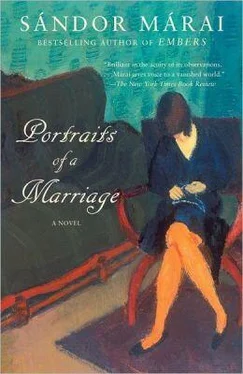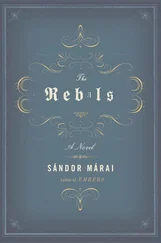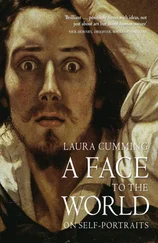During those weeks I didn’t go to confession as I used to. What would I have had to confess? What was my sin and how had I committed it? I felt I was the most innocent creature that ever lived. I don’t feel that way now … Sin is not just what the catechism says it is. Sin is not simply that which we commit. Sin is also what we desire but are too weak to do. When my husband — for the first and last time in his life — barked at me in that peculiar hoarse voice in the nursery, I understood my sin. I had sinned, in his eyes, because I was unable to save the child.
You’re staring into space. I can see you’re confused. You feel that only deeply wounded feelings or acute despair can lead a man to such an unjust accusation. Not for one moment did I feel his accusation to be unjust. “Yes, but think of all you did do,” you say. Well, yes, it wasn’t something I could be arrested for, whatever anyone thought. I sat at that child’s bedside for eight days. I slept there and nursed him. I was the one who went against usual practice and called other doctors when the first, and then the second, failed to help. Yes, I did all I could. But I did it all so my husband should find strength to live, so that he should remain mine, so he should love me — because there was no other way but through the child. You understand? … It was for my husband I prayed when I was praying for the child. My husband’s life was the life that mattered. That was the only reason the child’s life was of importance. That’s a sin, you say! … What is sin? I didn’t know then. I do know now. People who are part of us need to be loved and supported: those closest to our hearts, the love of whom lies deepest in us, they need all our power. It all collapsed when the child died. I knew I had lost my husband because, even though he said nothing, he blamed me. Ridiculous and unfair to blame me, you say. I don’t know. I find it impossible to talk about.
After the child died, I felt utterly exhausted, and of course I immediately fell ill with pleurisy. For months I lay in bed, got better, then relapsed again. I was in hospital. My husband brought me flowers and visited me every day, at lunchtime and in the evening when he came home from the factory. I had a nurse. I was so weak I had to be fed. And all the time I knew that none of this would help, that my husband would not forgive me; that being ill would not relieve me of my guilt. He continued as tender and courteous as ever … I wept each time he left me.
My mother-in-law visited me a lot at this time. Once, just before spring, when I had recovered some of my strength, she was sitting at my bedside, quietly knitting as usual. She gave me a friendly smile and murmured confidentially:
“What do you want revenge for, Ilonka?”
“What?” I asked, startled, and felt myself flushing. “What’s this talk about revenge?”
“It’s something you kept repeating when you were in a fever. ‘Revenge, revenge!’ you cried. There’s no revenge to be had, my dear, only patience.”
I listened. I was excited. It was the first time since the child’s death that I’d really listened to anything. Then I started speaking.
“I can’t bear it, Mama. What did I do wrong? I know I am not innocent, but I simply can’t understand where I went wrong, what sin I committed. Am I not part of his life? Should we divorce? If you think it would be better for us to separate, Mama, I’ll divorce him. You must know I think of nothing else, that all my feelings are directed at him. But if I can’t help him, I’d sooner be divorced. Please advise me, Mama.”
She looked at me with a serious, wise, sad expression.
“Don’t upset yourself, child. You know very well there’s no advice I can give. It’s just life: we have to live and put up with it.”
“Live?! Live?!” I shouted. “I’m not a tree! I can’t live life like some tree. We need something to live for . I met him and I grew to love him: suddenly life had meaning. Then everything changed in a strange way … It’s not that he has changed. It’s not that he loves me any less now than he did in the first year of our marriage. He loves me, even now. But he is angry with me.”
My mother-in-law said nothing. She didn’t seem to approve of what I’d just said, but she didn’t seek to contradict me.
“Am I right?” I anxiously asked.
“Not in the way you put it,” she said, picking her words carefully. “I don’t think he is exactly angry with you. Or, to put it more precisely, I don’t think it is with you that he is angry.”
“With who, then?” I asked in a temper. “Who has hurt him?”
“That’s a difficult question.” The old woman frowned. “It’s hard to answer.”
She sighed and put her knitting down.
“Has he never spoken to you about his childhood?”
“Oh, yes,” I said. “Occasionally. In his own way. With the same odd, nervous laugh he gives whenever he talks of something personal. People, friends … But he has never said that anyone had harmed him.”
“No, of course not,” she said dismissively. “You couldn’t possibly put it like that. Harmed him? Life can damage people in so many ways.”
“Lázár,” I said. “The writer … you know him, Mama? He may be the only one who knows anything about him.”
“Yes,” said my mother-in-law. “He used to adore Lázár. That man certainly does know something about him. But there’s no point in talking about him. He’s not a good man.”
“That’s interesting,” I said. “I feel the same way.”
She picked up her knitting again. She smiled gently and added, almost as an afterthought:
“Don’t excite yourself, child. The pain is all too fresh at the moment. But life comes along and miraculously arranges human affairs, including all those things that now seem intolerable. You’ll leave the hospital, go home, and another baby will arrive to take the place of the first one …”
“I don’t believe that,” I said, and felt my heart shrink with despair. “I have such a bad feeling. I think we are at the end of something. Tell me the truth: do you think our marriage is a genuinely bad marriage?”
She gave me a sharp look from under half-closed lids, through her glasses.
“No, I don’t think your marriage is a bad marriage,” she pronounced.
“Interesting you should say that,” I bitterly replied. “Sometimes I think it is as bad as it could possibly be. Does Mama know of better ones?”
“Better?” she asked quizzically, and turned away her head as if she were looking into the distance. “Maybe. I don’t know. Happiness, real happiness, tells no tales. But I certainly know of worse. For example …”
She fell silent. It was as if she were suddenly frightened, regretting opening her mouth. But I wouldn’t let her drop the subject now. I sat up in bed, threw off the covers, and demanded she continue.
“For example?”
“Well, yes,” she said, and sighed. She picked up her knitting again. “I’m sorry we should have to talk about these things. But if it is any comfort to you, I confess my own marriage was worse, because, frankly, I did not love my husband.”
She said this calmly, almost indifferently, the way old people sometimes speak when they are near death, people who know the true meaning of words, are afraid of nothing, and care more for truth than for keeping the peace. I went pale.
“That’s impossible,” I muttered like an idiot. “You had such a good life together.”
“It wasn’t a bad life,” she replied in a dry voice, knitting away furiously. “I got him the factory, you know. He, in his turn, brought me love: one party always gives more love than the other. But it’s easier for those who do the loving. You love your husband, so it’s easier for you, even though you suffer for it. I had to pretend to a feeling that had nothing to do with what I really felt. That’s much harder. I put up with it all my life, and you see, here I am. That’s always the case with life. Romantic, passionate people expect more, of course. I was never passionate. But, believe me, your situation is better. I almost envy you.”
Читать дальше












